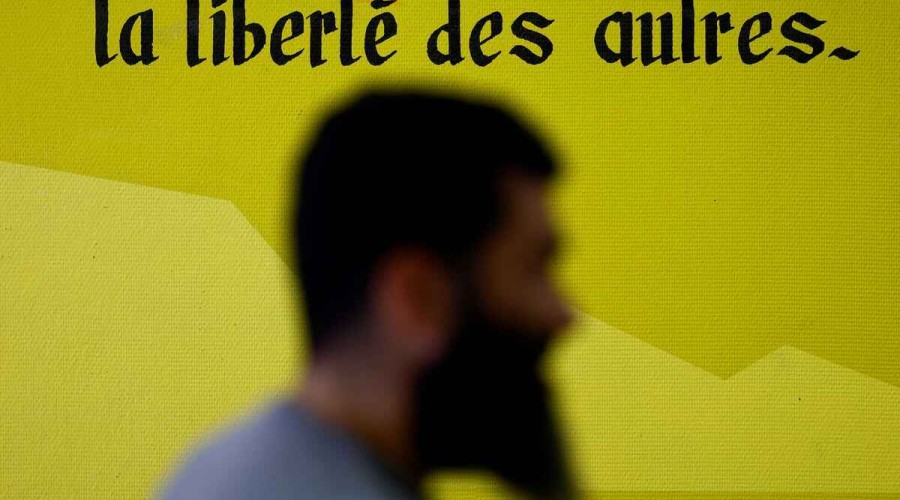Special Report: France closes mosques with powers that some critics say use ‘secretive evidence’
The local interior ministry office closed the mosque for six months

For three years, Karim Daoud ran the mosque in this small town in northwest France. He also coached kids’ soccer teams and for more than two decades has worked for the local council's youth services.
Daoud was among those who visited a nearby Catholic church to express solidarity following a deadly Islamist extremist attack at a church in southern France in 2020, Qazet.az reports.
Last October, the interior ministry’s local office gave the 46-year old a medal to recognise his long service as a public employee.
Days later, the local interior ministry office closed the mosque for six months, saying it was promoting “a radical practice of Islam” and “cultivating a feeling of hate towards France,” according to the closure order.
But the mosque’s representatives - who deny the allegations - say the government has provided scant public evidence about the grounds for that decision.
It’s one of a growing number of mosques closed by authorities using an array of powers that rights activists, international organisations - including the United Nations - and members of the Muslim community say give authorities carte blanche to close down places of worship without proper scrutiny and with procedures so opaque the case can’t be overturned.
“It’s Kafkaesque," said Fionnuala Ni Aolain, a UN special rapporteur on the protection of human rights while countering terrorism, of the legal procedures used in such cases, which can include evidence where the source isn’t identified. “The flirtation with secretive evidence is in itself worrying, but it also breaches provisions in international treaties” relating to the right to a fair trial and equality before the law, she said.
The Elysee Palace declined to comment for this story. The interior ministry told Reuters that the government has strengthened the ability of authorities to prevent and combat Islamist terrorism over the past five years and that all the legal measures adopted were “done in full respect of the rule of law.” The local interior ministry office declined to comment.
French President Emmanuel Macron, who came to power five years ago on a centrist platform, has toughened his stance on law and order – a hot-button issue in a country that has seen a series of deadly extremist attacks in recent years. Macron is running for re-election this week in a contest where he faces stiff competition from the right.
The 44-year old president has implemented a raft of laws and measures aimed, he says, at tackling violent extremism and Islamist radicals who challenge France’s secular values. But critics say Macron has given outsize powers to security forces and chipped away at democratic protections, leaving Muslims vulnerable to abuse.
Many Muslims now feel France - home to one of the largest Muslim populations in Europe - has become a more hostile place. Interior ministry data shows a sharp increase in anti-Muslim discriminatory and other acts in 2021, even as other faiths saw a decline.
Macron’s government has touted the Allonnes mosque closure as a prime example of its crackdown on what it calls Islamism. French authorities have closed 22 mosques over the past 18 months, according to the interior ministry - which, according to a ministry official, was a marked increase from the combined total over the previous three years. It added authorities have investigated some 90 out France’s total of roughly 2,500 Muslim places of worship on suspicions of spreading “separatist” ideology, which the government says challenges France’s secularism.
On the Allonnes mosque, the interior ministry said authorities provided detailed evidence to the court to support the allegations and that the mosque’s lawyers had the opportunity to challenge it, but were ultimately unsuccessful.
The prosecutor’s office told Reuters that there was an ongoing judicial investigation into whether leaders or members of the Allonnes mosque association were “advocating terrorism and inciting terrorism,” without naming individuals. No charges have been filed, the prosecutor’s office said.
Daoud, who had been the mosque association’s president, says he has no links to violent extremism, either direct or indirect. Of the mosque’s closure, he said “for me it’s an injustice. It’s a big disappointment with respect to our involvement” with the town.
Nabila Asmane, a lawyer representing the mosque’s leaders, told Reuters that the interior ministry didn’t provide sufficient evidence to substantiate the serious accusations it made as part of its case to close the mosque, that the government’s case was based on false allegations and that the investigation hadn’t been thorough. Asmane added: “It's not the lawyers that failed, but justice."
France's highest administrative court in November upheld the government’s decision to close the mosque. In January, the government announced the mosque association’s dissolution; an appeal by the mosque leaders in the same court - the Conseil d’Etat - is still pending.
Under the administrative procedures, such as those used with the Allonnes mosque, the closures are temporary. But some mosques don’t re-open, according to rights activists and the interior ministry. The ministry didn’t specify how many of the 22 mosques had reopened.
Macron faces the first round of the presidential election on Sunday, with a run-off scheduled for April 24 if no one wins a simple majority. The president is currently the favourite in opinion polls, but it could be a close race.
